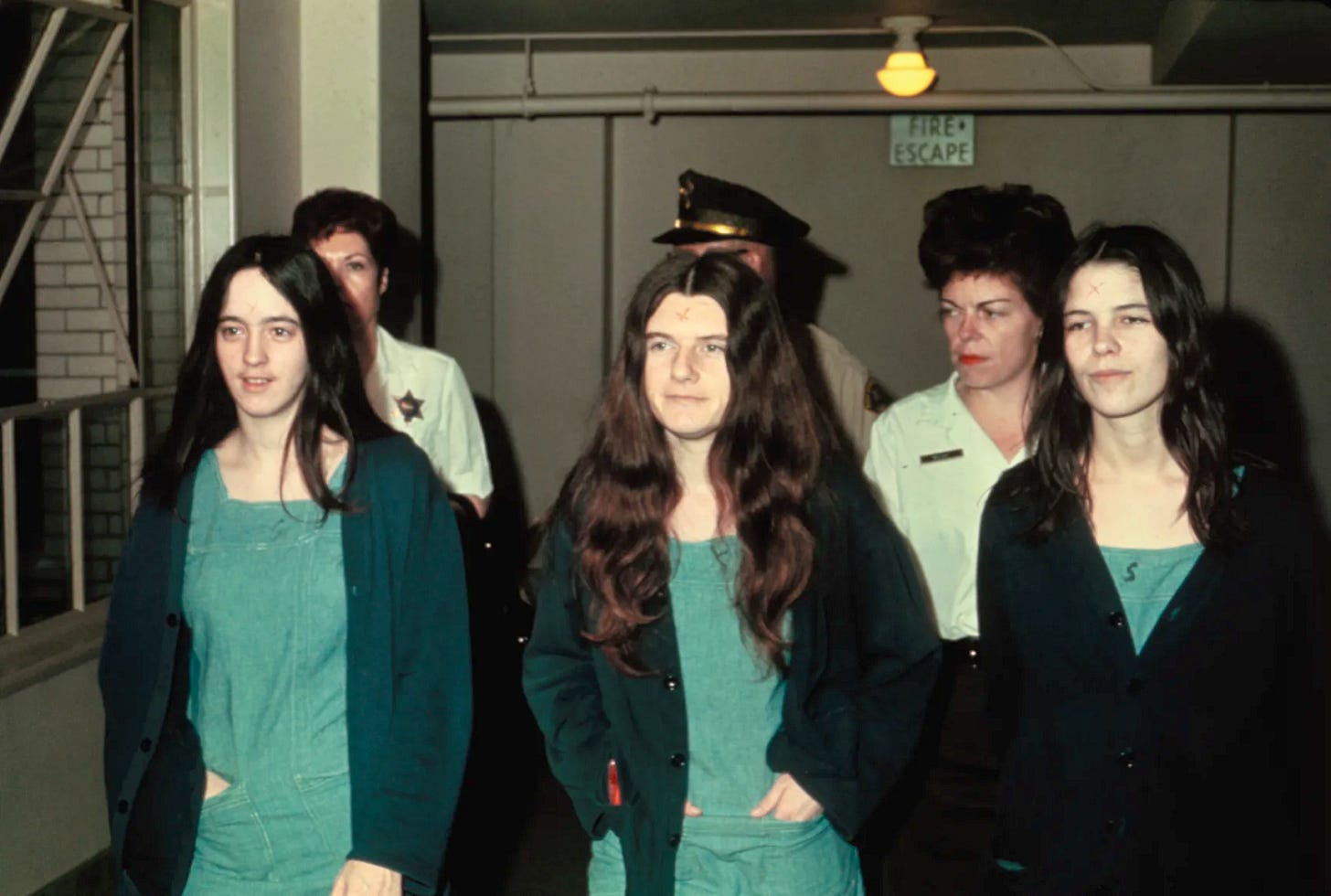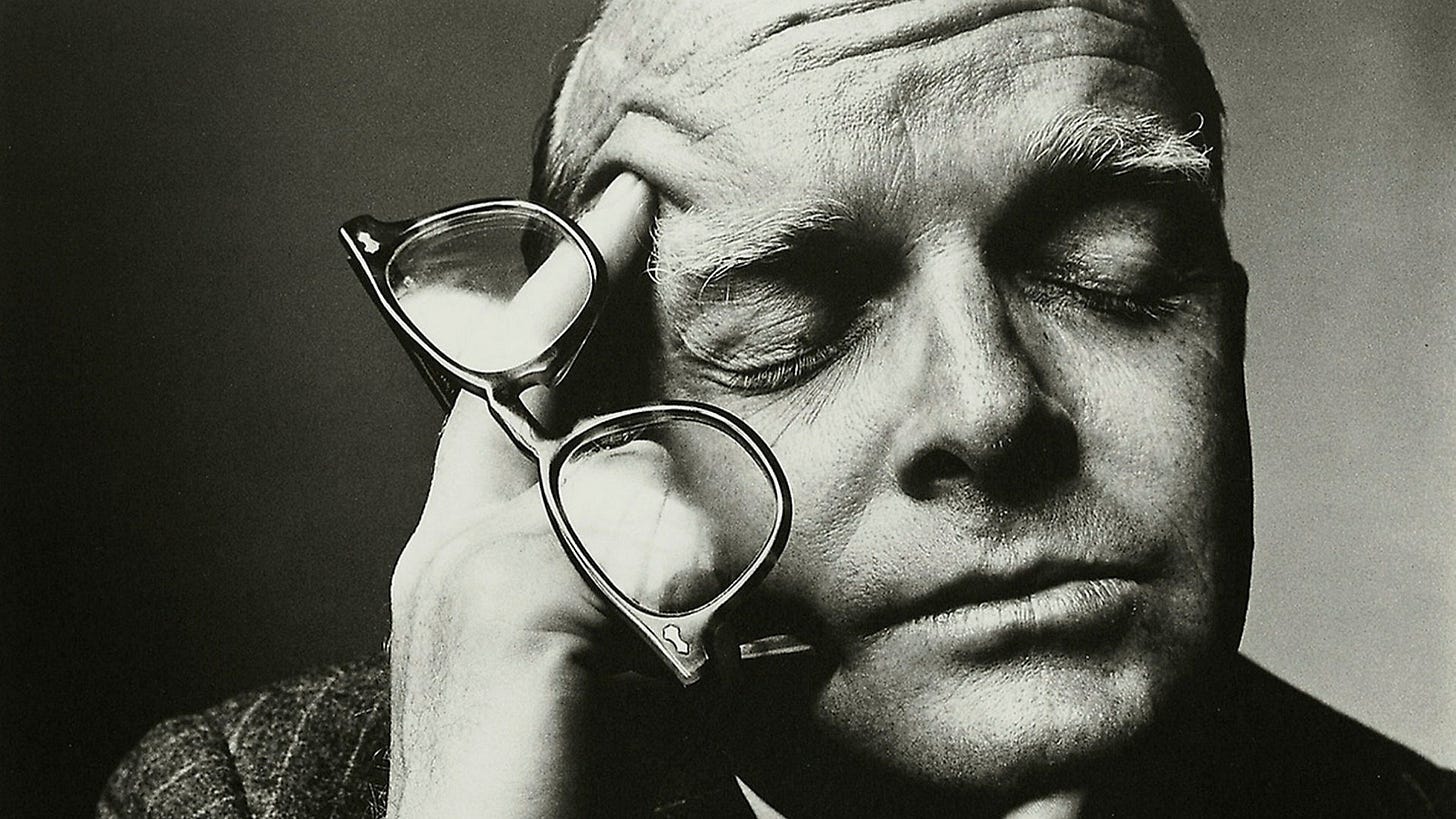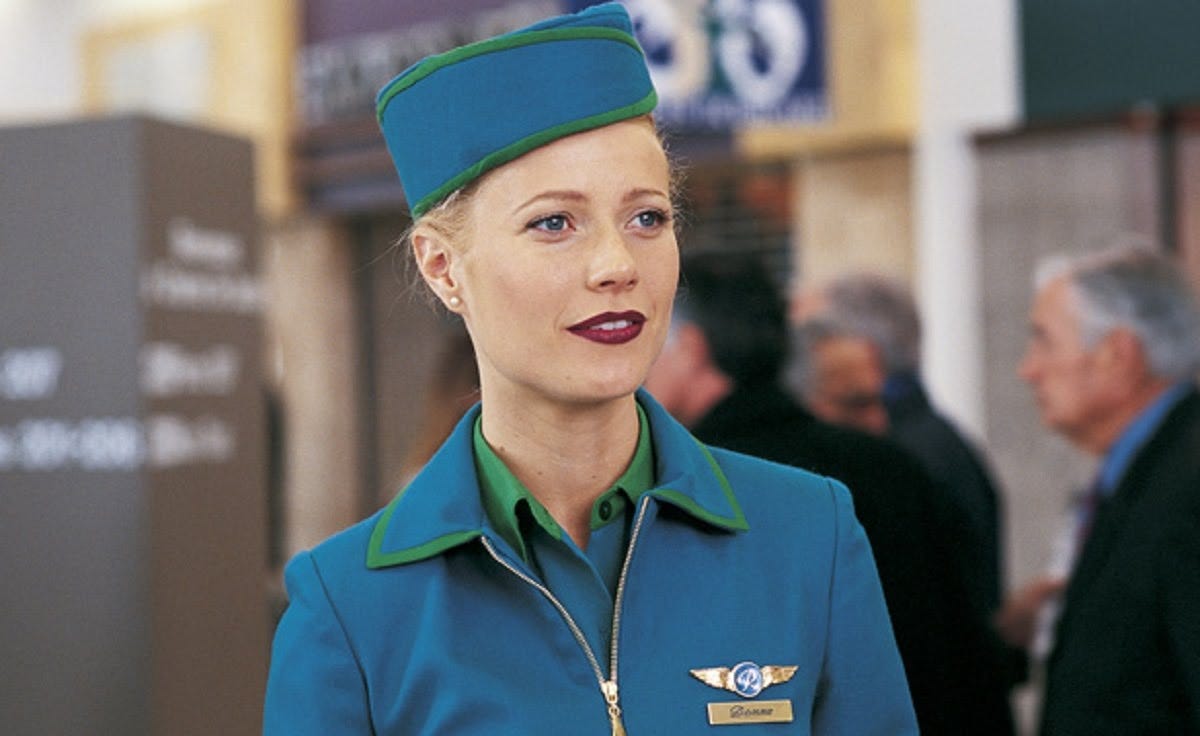If you’ve ever taken a meeting with a television executive, you know that producers are often looking for ridiculously specific—and simultaneously generic—pitches: “we want Succession but set in France with a family that’s in the wine business and at least one of them is gay. Do you have something like that?” (If you don’t believe me, I refer you to this article). I’ve always refused to fulfill those requests (it’s probably why I’ve yet to have a show in development) but I thought I’d pass the trauma on by asking you for recommendations on what you consider the “definitive takes”—think The People Vs. O. J. Simpson for the O. J. story, or Jurassic Park for dinosaurs—on the following subjects:
Truman Capote
Why I’m asking: As I mentioned a few months ago, my first contact with Capote happened in college when I read In Cold Blood—which I’ve just finished re-reading and am happy to report still holds up. But he really entered my mind a couple of years ago, when I read Melanie Benjamin’s The Swans of Fifth Avenue, which chronicles Capote’s friendship with socialite Babe Paley. The book can be a bit melodramatic, but the story it tells is very interesting; I did a lot of Googling after, and Capote’s biography is fascinating. He grew up in Alabama but managed to become the king of New York’s society; his best friend since childhood was Haper Lee; he was responsible for not just In Cold Blood but ALSO Breakfast at Tiffany’s; he basically met every single famous person ever and became close friends with them (and then betrayed some by airing their dirty laundry). It doesn’t take a genius to realize I probably see a bit of myself in this eccentric outsider trying to win over the Big Apple; I have, in fact, a pitch for my own show about him and Paley based on the format of Fosse/Verdon (I named the show, very unoriginally, Paley/Capote)—but while that doesn’t get produced, I’d love to find a good take on his life!
What I’ve already tried: I’m not stupid, I know there is a very famous movie that is considered thee Capote take. It just didn’t do it for me? I do think the late Philip Seymour Hoffman is very good in it, for sure. But while the film focuses on a single event (as opposed to trying to cover his whole life), which I consider the golden standard of any good biopic, the event chosen here—Capote’s investigation into the Clutter murders and the process of writing In Cold Blood—didn’t strike me as the most significant, or the one that captured Capote’s personality the most? The movie argues that it is, because it showcases Capote at his best (gaining the confidence of not only Holcomb residents but also the killers, whom he befriends) and at his worst (profiting off their stories to the point that he’s basically rooting for his new friends to be hanged so he can finish the book). However, to me, that only becomes relevant when we consider what made Capote so desperate for success. The movie touches on this superficially, posing that people didn’t take him seriously because he was an effeminate, diminutive man. And, sure—but that didn’t stop him from cracking the echelons of New York’s high society way before he wrote In Cold Blood. The way I see it, Capote was adored by rich and powerful women because of his gossipy charm; writing a masterpiece would mean proving himself to their husbands as well. His failure to win a Pulitzer is one of the most significant details about the whole episode for me, and we don’t get to see this devastating moment in the movie—him being shut out from the recognition that he so sorely needed, in spite of having written the best-selling book of the decade. Another film that came out a year after Capote, Infamous, gets closer to tackling this dilemma, balancing the New York vs. Kansas aspect of writing In Cold Blood—but, again, I just don’t feel like this episode is the most significant in his life (and I was unable to buy Sandra Bullock’s Southern accent, so that didn’t help). Capote strikes me as an addict, one who was not satisfied with any amount of success—and if I had to choose a single moment to portray, it would be the one when he sacrificed his closest friends on the altar of public scandal and still did not get the hit he wanted.
Things I know of but haven’t tried: there’s a play by Jay Presson Allen, Tru, which apparently the late Robert Morse (whom my generation will know as Bertram Cooper from Mad Men) was very very good in—he won a Tony and an Emmy for it. The play is not available on Kindle at the NYPL or BPL, and I could not find the American Playhouse episode of it on any streaming services, but if you have very nice things to say about it I might consider trying harder. I know there are some recent books; I did read Capote’s Women, which was fine but maybe covers too much (I couldn’t keep the swans straight after a while) but have not read Swan Song, since I feel like maybe it might be too close to Swans of Fifth Avenue. There’s also a documentary, The Capote Tapes, which I have not seen.
Or: Just produce my show and then that’ll be the definitive take!
Flight attendants
Why I’m asking: the other day, I read a surprisingly gripping New Yorker profile of Sara Nelson, which chronicles her story of becoming a flight attendant and then getting involved in the profession’s largest union, the Association of Flight Attendants. While doing that, the article also provides an overview of the field, particularly during the 9/11 and COVID crises, ending in the current push that might see Delta flight attendants finally join the A.F.A. (other major carriers have mostly unionized staffs already) and how Delta is trying to prevent it by providing “boarding pay”—yes, flight attendants do not get paid until the pilot releases the plane’s brakes, so all those times you asked them for water or a pillow before takeoff, they were doing that for free.
As I read the profile, I thought “wow, this would make for a great TV series,” and then I thought “wait a minute, why isn’t there a TV series about this?” I felt particularly aggrieved because I grew up during a time when air travel, regardless of which class, was a fancy affair—people did not form lines 30 minutes before boarding, and the cutlery was made of actual metal (there’s still a Lufthansa knife in my house that is ideal for spreading butter). I used to be very excited by the prospect of flying, and once made my family’s phone bill way too expensive by calling an airline’s international hotline to make sure they would send me my frequent flyer card (I was 13). I now hate flying and deeply resent the fact that teleportation is not a thing, so I pine for the time when I loved airports, and being on a plane was the thing I looked forward to the most on a trip. Bring me back the excitement that baggage fees and the TSA stole from me!
What I’ve already tried: Gwyneth Paltrow’s star-making film View From The Top (pictured above) is obviously an iconic take—who can forget the line “I love you but I left you for Paris,” or the gasp-inducing plot twist involving heart-dotted Is and stolen bathroom soaps? (Also, Christina Applegate! Mark Ruffalo! Candice Bergen!) However, this is a film with a 14% Rotten Tomatoes score that Paltrow herself called “the worst movie ever,” so, yeah. Iconic doesn’t equal definitive. There’s also the TV show The Flight Attendant, though it’s a bit of a misnomer, as Kaley Cuoco spends very little time in it actually flight attending, and a lot of time trying to figure out if she killed Daenerys Targaryen’s boyfriend—so, again, not definitive.
Things I know of but haven’t tried: The TV show Pan Am, which I didn’t watch when it aired (haha) because it flew (haha) under my radar, and now won’t watch because:
It was one of the many Mad Men copycats, a Digimon to Mad Men’s Pokémon, and we all know how I feel about Mad Men. (Also, wow, there were a lot of Mad Men copycats, I had forgotten about that. Remember The Astronaut Wives Club?)
It got canceled after one season, and I cannot be expected to invest in plotlines that will not be resolved.
It’s on Sundance Now (a.k.a. AMC+) and that’s one hard-to-get login. No one I know has it!
However, it does have Christina Ricci in it, which could potentially be a plus considering her work in Yellowjackets (and also Margot Robbie? The early 2010s were a wild time in network television). And it takes place in an era in which air travel was the FANCIEST, which also interests me. So if you feel strongly that I should watch (and have an AMC+ account) let me know?

The Manson Family
Why I’m asking: though I had heard his name several times before, I only really learned who Charles Manson was while on a bus ride across state lines a few years ago. Because I have motion sickness, reading or looking at screens while on a bus is off-limits, so I tend to download a bunch of podcasts before a trip, of which I actually listen to maybe two, and the rest remain unheard. Thankfully, on that specific trip, I decided to give Karina Longworth’s You Must Remember This (about forgotten Hollywood stories) a try, and was treated to a very comprehensive account of Manson’s life. His story reflects the big culture shift of the 60s (a time period that, in case you haven’t caught on, I am obsessed with) while at the same time providing ammunition to those who saw in this shift something dangerous, a darker side to flower power. The story of how Manson, rejected by Hollywood and Vine, formed a cult of mostly female followers with whom he had a horribly abusive relationship is not necessarily something that would catch my eye—but the fact that it took the Family murdering several people for society to take notice (and action) is the sort of big-picture reflection that I’m drawn to: why didn’t any of the people who met Manson and his followers (including Dennis Wilson of the Beach Boys, and music producer Terry Melcher, Doris Day’s son) do anything about what was clearly a messed up situation? Was it because the Family was embracing a “new way of life” that was supposed to be better, and therefore people were more likely to ignore its rougher edges? Was free love a break from the patriarchy—or just a new costume? There’s a lot of material in this to tell the story of counterculture from its most radical angle! Plus the Tate-LaBianca murders have an oblique connection to Rosemary’s Baby (Sharon Tate was married to Roman Polanski, and the murders happened a year after the movie came out) and we all know how I feel about Rosemary’s Baby.
What I’ve already tried: Okay, I’ll be honest and say I haven’t tried super hard with this one. In my defense, Longsworth’s podcast, while not a take per se (she’s more historian than revisionist) covers most of the details, so I don’t need another retelling—I need perspective. A long time ago, I picked up Emma Cline’s The Girls, got bored, and put it down; then, I read her short story White Noise and absolutely loved it, so I gave The Girls another try and made it all the way through. But still, it didn’t land as a definitive take for me, the plot a bit unfocused and the pace languid—and while it certainly tackles the question of just how radical free love really was, it doesn’t answer it in a way that feels era-specific; the Manson angle feels incidental. In the same vein, the recent I Love You But I’ve Chosen Darkness, by Claire Vaye Watkins (whose father was a procurer of girls for Manson), touches upon the subject in a specific enough way as to awaken my appetite, but does not provide any new insights that could satiate it. To be fair, that is not the novel’s aim, and while I found it somewhat refreshing in general (it’s one of those modern novels in which the female protagonist just doesn’t care—but in this case, she ends up caring a little bit), my search for the definitive Manson take continues.
Things I know of but haven’t tried: there’s a TV show, Aquarius, whose showrunner I met once and did not vibe with. Plus I have a gut feeling that the definitive take on this story will not be told as a police investigation? There’s also the movie Charlie Says, which, sure, it has Matt Smith in it, but doesn’t look like it offers much else. I am willing to give either of these a chance if you go to bat for them. However, I don’t feel willing to give Once Upon a Time in... Hollywood a chance. While it seems (looking at Wikipedia) like it tells the story the way that I would tell it, I have a finite amount of patience for Tarantino, and the only time he didn’t waste it was Kill Bill, one of my favorite movies ever (watch out for a mention in a future newsletter). Anything before or after it has mostly not been to my taste, and at some point I stopped watching his work… I just don’t see myself restarting that process for a movie that’s two and a half hours long. (But if you know me really well and can think of a reason why I absolutely must, give it a shot, why not).
I still don’t understand what a “definitive take” is!
It’s the movie The Queen for Queen Elizabeth II. I can’t explain it better than that.




